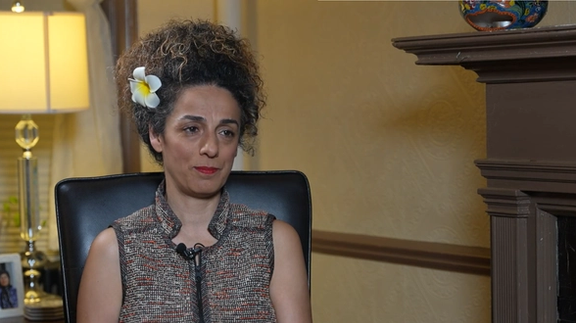Influential Iranian Activist Takes Instagram To Task For Possible Censorship

A women's rights activist with over 7 million followers on Instagram has warned that Iran may be manipulating the platform’s moderation system in its own favor.

A women's rights activist with over 7 million followers on Instagram has warned that Iran may be manipulating the platform’s moderation system in its own favor.
In an op-ed entitled “Does Instagram Have a Problem with Iranian Dissidents?” in the Washington Post on Monday, the US-based activist Masih Alinejad recounted her recent problems with Instagram including loss of access to Instagram’s ‘live’ feature. She said this happened right after she posted a video of a confrontation on a city bus in Tehran between a hijab-wearing woman and another who refused to cover her head.
The video posted by Alinejad went viral on social media and had over 2.5 million views on her own account within a short time.
Ali Khan-Mohammadi, the spokesperson of Iran’s Headquarters For Enjoining Right And Forbidding Evil, tasked with promoting the Islamic Republic’s interpretation of Islamic laws, said on Saturday that based on the Islamic Republic’s Penal Code any cooperation and sending videos to Alinejad could result in one to ten years imprisonment.
Khan-Mohammadi argued that sending material to Alinejad would be considered as collaboration with “enemies and hostile media networks” because since 2021 she has been “an official member of the CIA”.
Asked by the Washington Post to comment, an Instagram representative said the restriction “was placed on Masih’s account incorrectly because of a technical issue,” explaining that the platform automatically issues restrictions “when our systems detect spammy behavior.” The representative added: “It is against our policies to take action on accounts at the request of the Iranian government.”
But Alinejad is not convinced and says it is not some random glitch as it appears there even a more serious issue. Some fellow Iranians have not been able to find her on Instagram despite having an officially verified account and millions of followers.
“Technical issues happen; social media restrictions aren’t necessarily proof of censorship or nefarious influence. But there’s a troubling pattern here,” she wrote.
“Why did the system restrict my account right at the moment when I was about to promote a protest against compulsory hijab? If algorithms have the power to restrict accounts, can the Iranian regime game those systems in its own favor?” she asked while mentioning that human factor could be involved.
In the past few months other Iranian activists and groups have complained about restriction on public access to their Instagram direct messages as well as removal of hashtags, videos, and posts related to ongoing protests in the country.
In May, a Persian-language content moderator for Instagram and a former content moderator told BBC Persian that Iranian intelligence officials offered them money to remove Instagram accounts of journalists and activists. Both content moderators also accused some Iranian colleagues of exhibiting "pro-regime bias" when reviewing posts on the photo-sharing service.
The former content moderator who spoke on condition of anonymity told the BBC that he "personally knew some reviewers who supported the Iranian regime and received instructions from Iran".
Both the current and the former moderator worked for the Germany-based Persian-language moderators’ group of Telus International, the third-party company responsible for dealing with reports and complaints from Instagram and Facebook users.
In May, Iran International also complained about its videos from protests in Iran being removed by Instagram.
Instagram which has around 45 million users in Iran is the only major social media platform not blocked in the country where other platforms such as Facebook, YouTube, WhatsApp, Twitter, and Telegram cannot be accessed without the use of internet blockage circumvention software and VPNs.
Iran has one of the world’s worse internet censorships, with tens of thousands of websites blocked since the early 2000s and most social media platforms banned. In the absence of free media and the very high level of censorship, many Iranians turn to social media for political news and information.